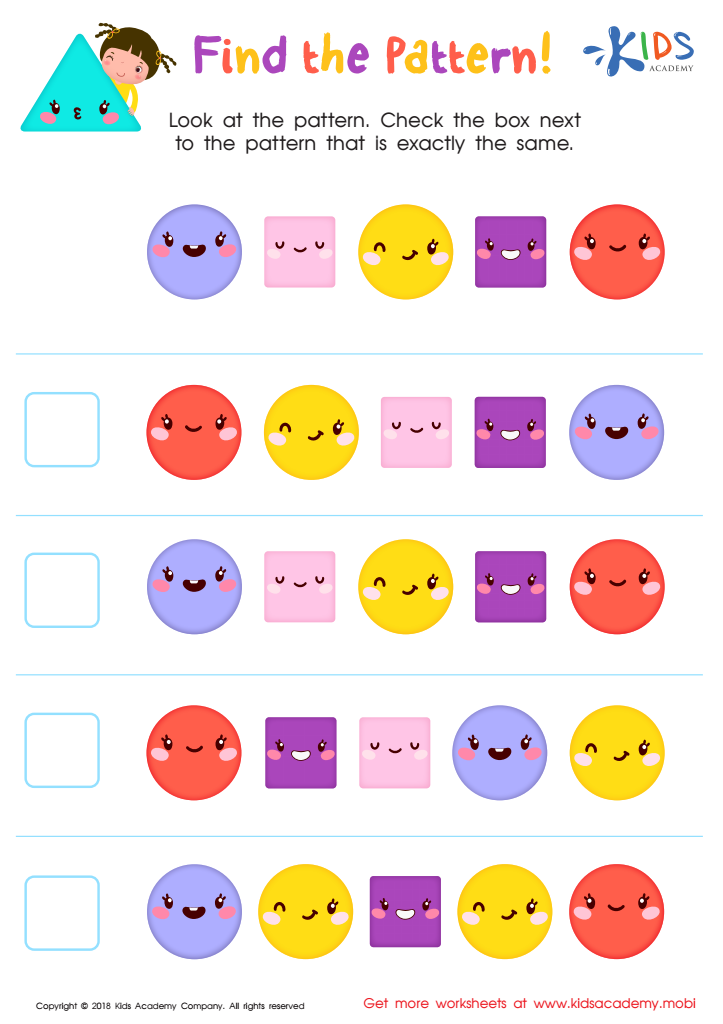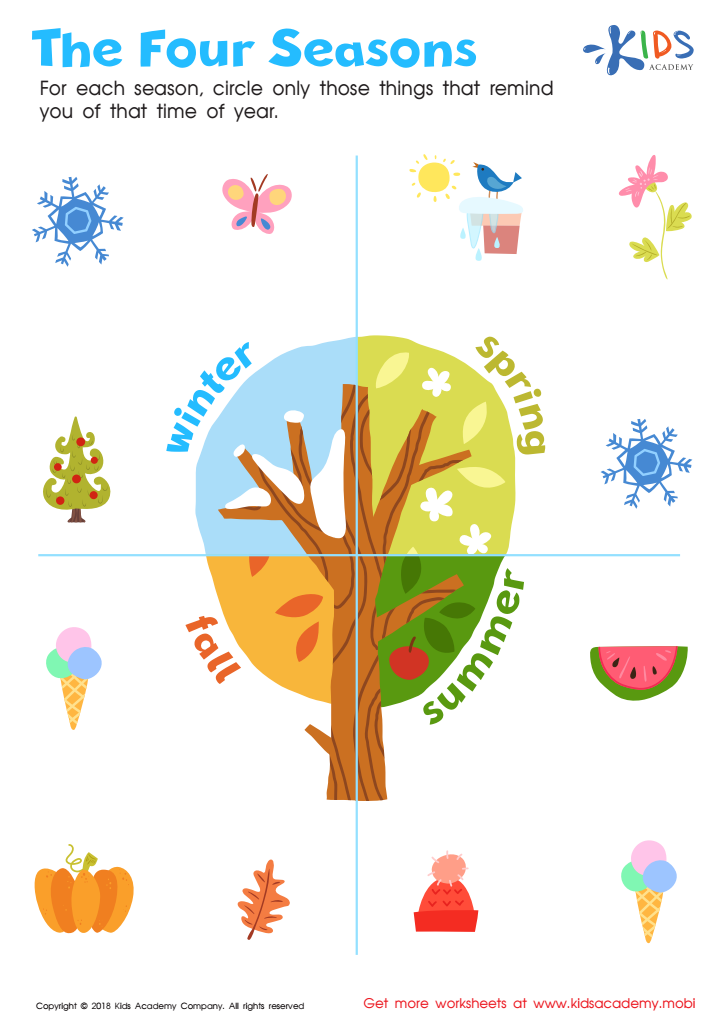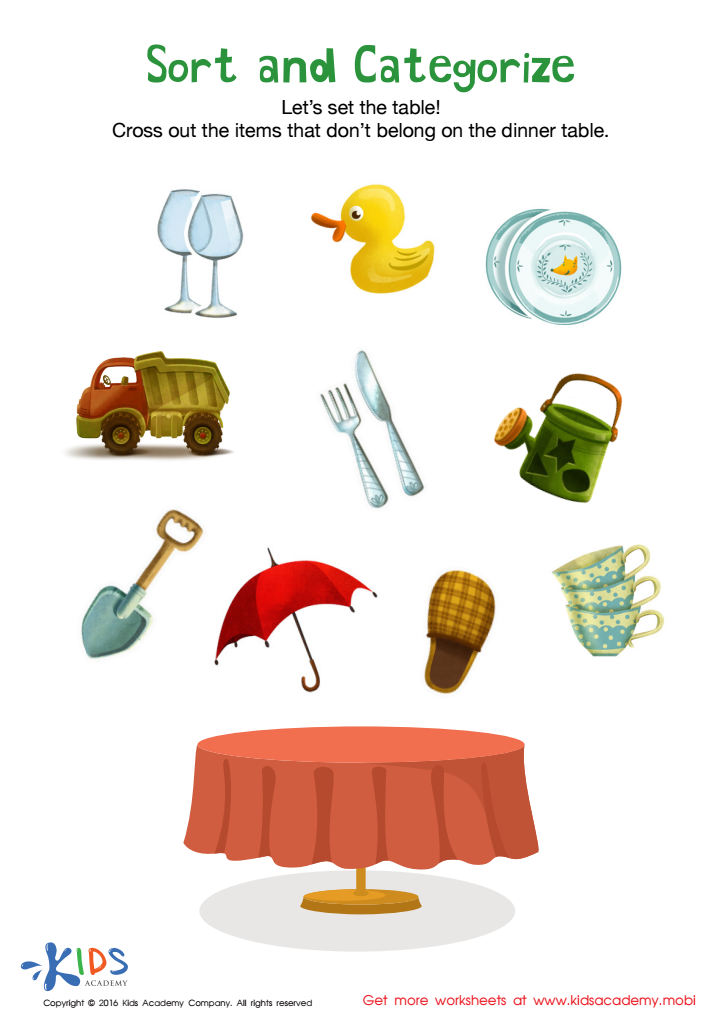Critical Thinking Matching Worksheets for Ages 3-8
4 filtered results
-
From - To
Discover our engaging Critical Thinking Matching Worksheets designed specifically for children aged 3-8. These interactive activities foster essential cognitive skills while promoting problem-solving and reasoning abilities. Through fun matching exercises, young learners will enjoy identifying similarities and differences, enhancing their analytical thinking in a playful way. Our worksheets cater to various skill levels, ensuring that every child can benefit from critical thinking practice. Perfect for both classroom settings and at-home learning, these worksheets empower children to develop a strong foundation for future educational success. Start exploring today and watch your child's critical thinking skills flourish!


Find the Pattern Worksheet


Make the Same Pattern Worksheet


The Four Seasons Worksheet
Critical thinking is a crucial skill that lays the foundation for lifelong learning and effective decision-making. For parents and teachers of children ages 3-8, fostering critical thinking abilities is particularly vital as this is a formative period in brain development. Engaging children in critical thinking activities, such as matching games, not only helps improve cognitive skills but also enhances their ability to analyze information, solve problems, and develop reasoning skills.
Matching games stimulate children’s minds by challenging them to make connections, categorize information, and think logically. These activities encourage children to assess relationships between different concepts, promoting comprehension and retention. When parents and teachers prioritize critical thinking matching exercises, they provide both fun and educational opportunities that make learning enjoyable.
Moreover, developing critical thinking at a young age sets the stage for improved academic performance, better communication skills, and increased confidence in expressing thoughts and ideas. These skills are not only important for school but also for navigating real-world challenges as children grow. By incorporating critical thinking into early learning experiences, parents and teachers empower children to become thoughtful, independent learners who are prepared to face a complex world.

 Assign to My Students
Assign to My Students

















